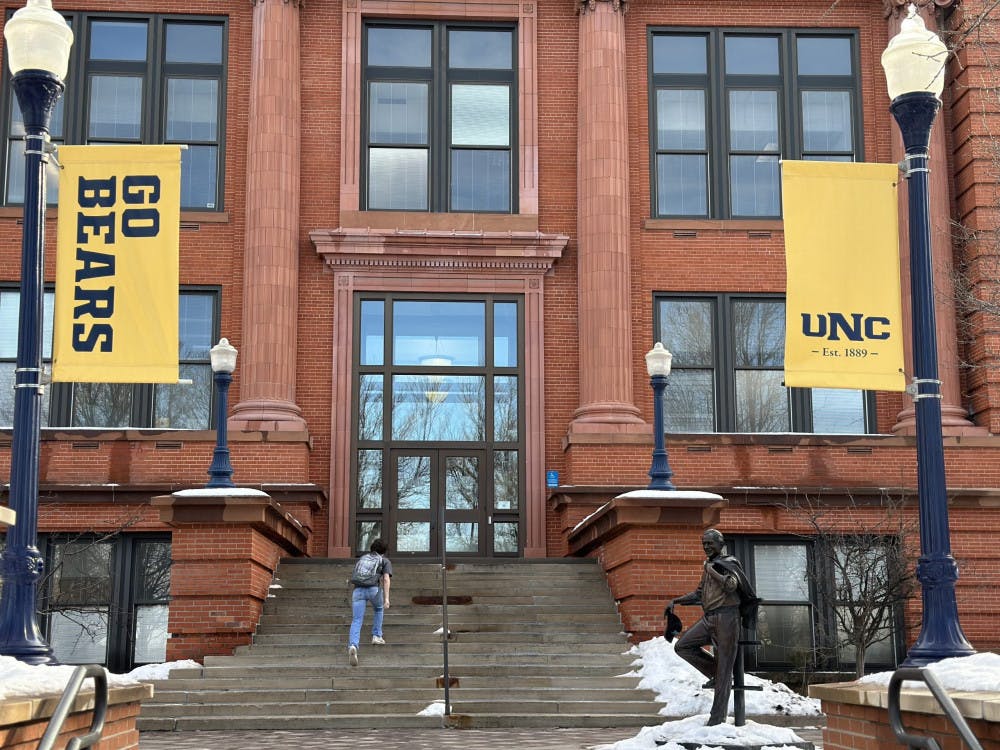At the beginning of the spring semester, the University of Northern Colorado was projecting a daunting $6 million operating loss. Now, it seems the tides are turning and the university is only looking at a $3.8 million operating loss. So, how did UNC end up with such a large loss in the first place?
There were two primary factors that contributed to the deficit, one of which being the decline in enrollment. UNC predicted that there would be around 5,499 full-time undergraduate students, but there were only around 5,483. Although it’s only a 16-student gap, undergraduate enrollment also affects dorm occupancy, meaning the university ended up in a shortage with the combination of the overall enrollment decline and lower than anticipated housing occupancy.

On the other side of the coin, the university had a lower rate of staff turnover than it has in previous years. When there are vacant jobs, the university saves money because they are not actively paying someone to fill that position. Since there was less turnover this year, the university did not save as much money as expected. UNC Chief Financial Officer Dale Pratt says that while it’s great news that fewer staff and faculty are leaving, it has added to the strain on the budget.
One of the ways UNC has been able to reduce the operating loss from $6 million to $3.8 is with the introduction of a more comprehensive hiring process. To ensure they’re only hiring people for the most crucial and needed roles, there is now a cabinet-level review of any potential new hires to make sure only urgently needed positions are being filled. That has greatly reduced the personnel expenses from $2.2 million over budget, to only $700,000 over budget.
That is not the only way UNC has been cutting down its spending. When the original $6 million deficit was announced, UNC made a controversial decision to highly scrutinize faculty travel. Despite having already been budgeted, professors were told that they would not be able to travel to professional development events like conferences. The problem lies in the unfairness of that decision. During the fall semester, any professor who had travel plans was free to pursue them, but professors traveling this semester do not have that same freedom. UNC Faculty Senate Chair Dawit Senbet says it’s not only unfair, but also presents further problems as professors are evaluated on professional development activities like doing research and publishing work, which can include traveling.
“Travel is part of our workload - 20% of our workload,” Senbet said. “So if we are evaluated based on those activities that we do, but we are limited to do those activities, how is that fair?”
Senbet says that during the last faculty senate meeting on Feb. 12, the committee unanimously passed a resolution in support of the faculty’s pursuit of scholarly, creative and research related activities. According to him, the administration seems to be listening to the faculty’s concerns.
While second quarter projections of a $3.8 million loss is certainly better than the $6 million the university started the semester with, Pratt says it’s not an insignificant amount.

“It’s a big deal for us to have a deficit and have to work to close that and to save money," he said. "It puts a strain on our resources, but we have had those kind of deficit projections before and we’ve been able to manage through them effectively.”
Despite the loss, Pratt says that UNC is not in a bad position.
“UNC is actually in a reasonably well positioned financial spot right now,” Pratt said. “Our fiscal health is strong, all things considered. We’ve successfully navigated the pandemic and the enrollment declines that have been exacerbated by the pandemic in the last couple years.”
Going forward, it seems solving the enrollment equation to reverse the decline will be the key to increasing revenue. With the university showing positive signs of enrollment increase in the future and continued financial support from the state, UNC may be able to avoid deficits in the years to come.






